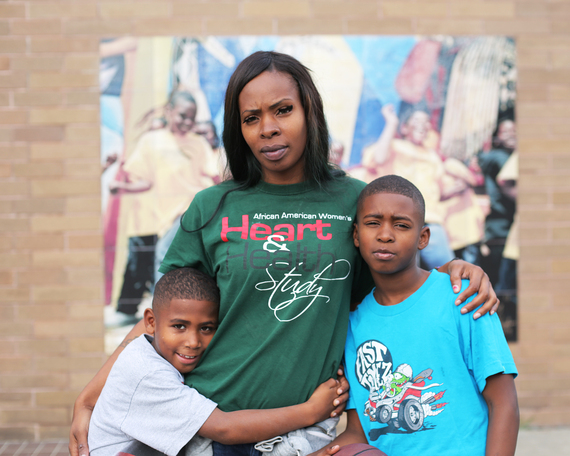
Kamica Cooper, San Francisco resident and FII participant
During the holidays people are particularly charitable. Giving to help someone "less fortunate," "underserved," "poor" or "needy" makes us feel good. That's not a bad thing for "us" who are doing the giving, and it does often address a short-term need. My last series of posts here, however, pointed out some of the downsides of top-down assistance, including that it adds to the stereotype that low-income people cannot help themselves and won't help others. That is simply not true. I challenge us to start reversing the stereotype. Let's look at 2015 as the year we invest in how people are helping themselves and one another!
Just as "angel investors" look for talented graduates from Stanford, and parents with wealth look to invest in the talents of their kids, those of us wanting to be helpful can also seek out families and groups of families that are helping themselves and one another. They are everywhere -- especially in our toughest neighborhoods. What my project, the Family Independence Initiative (FII) has found over the last 13 years is that in places where we see the most need, we also find the most innovative ideas for survival and even progress.
But you say you want to help the "most in need"? Then you are missing the fact that there are people like Whaticia, from Bayview-Hunter's Point in San Francisco, who works with youth and is an anchor of support and wisdom to her neighbors. People like Whaticia are like the "neighborhood aunties" of the old days who sat on their stoops keeping an eye on things. They live there, they watch and they help, not because they are getting paid but because it is in their heart. So let's find them and stand with them, follow them and pay for the food they are distributing in their own communities, or recognize them with even small awards. That recognition goes further than starting a new program.
So how do you find them? Well, you can ask nonprofits or churches or teachers to point out who the helpers are in the places you care about. Not the leaders who talk the talk, but those who actually spend their personal time and their own money to help others. In 2015, FII will be sharing information on who is taking this type of initiative so that you can invest in them directly. People like:
- A group of families in East Oakland who trade fruits and vegetables from their back yards with neighbors as a way to get to know them better and make sure no food goes to waste;
- Pattie Newsom from San Francisco who creates and delivers gift baskets during Easter to mothers and children in shelters;
- Baakir Tyehimba, whose New Orleans-based café is an after-school gathering place for kids to do homework and learn about their culture;
- A group of families in Detroit's Brightmoor neighborhood who organized a back-to-school event providing 200 children with backpacks, school supplies, uniforms, winter gloves and hats and haircuts; and,
- Kamica Cooper, also from San Francisco, who started an after-school reading group for her son and his friends after noticing that they were struggling with reading.
There are also sites online like Kiva Zip or Benevolent that crowd source funding for individual initiatives.
FII wants to track this new way of helping -- investing in local initiative -- and use it to show the country that getting dollars, connections and recognition directly to residents in low-income communities is the best and most cost-effective way to re-establish collective economic mobility and even help the most in need.
